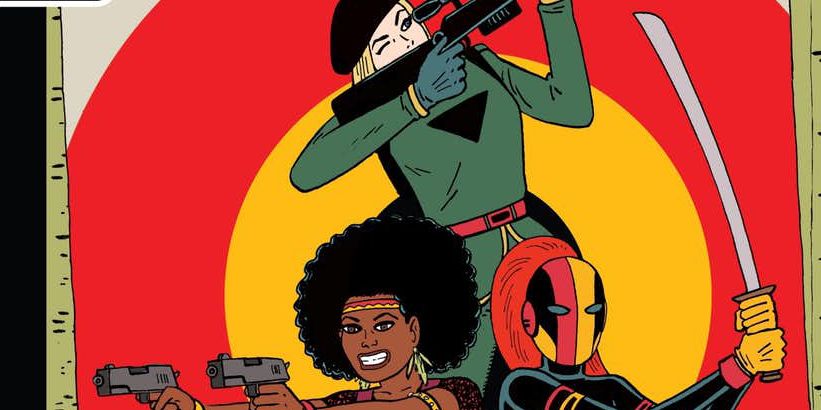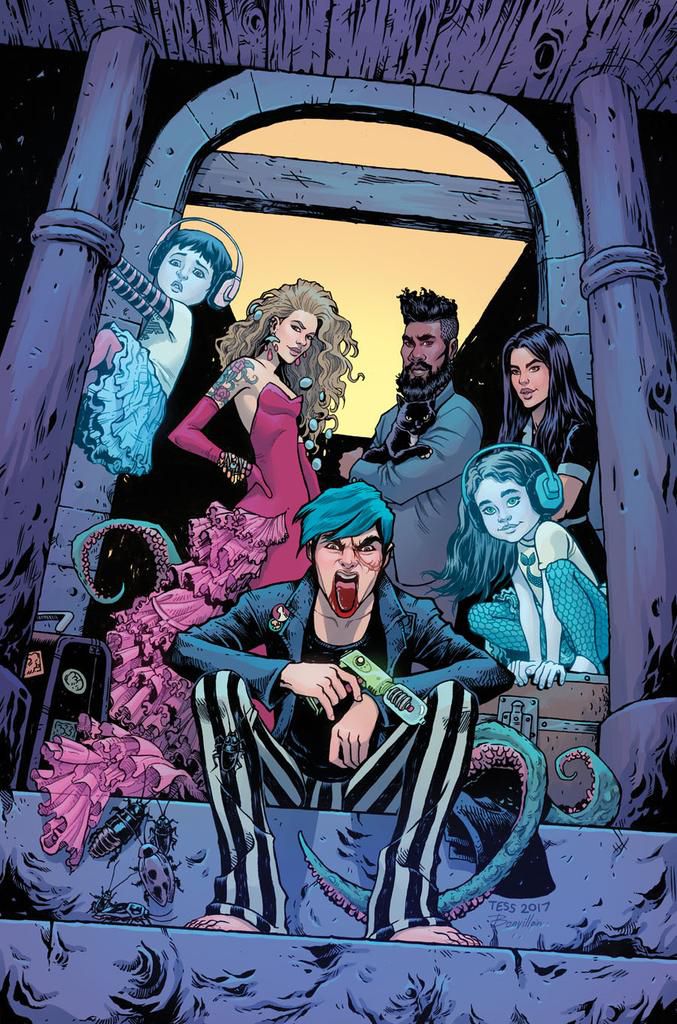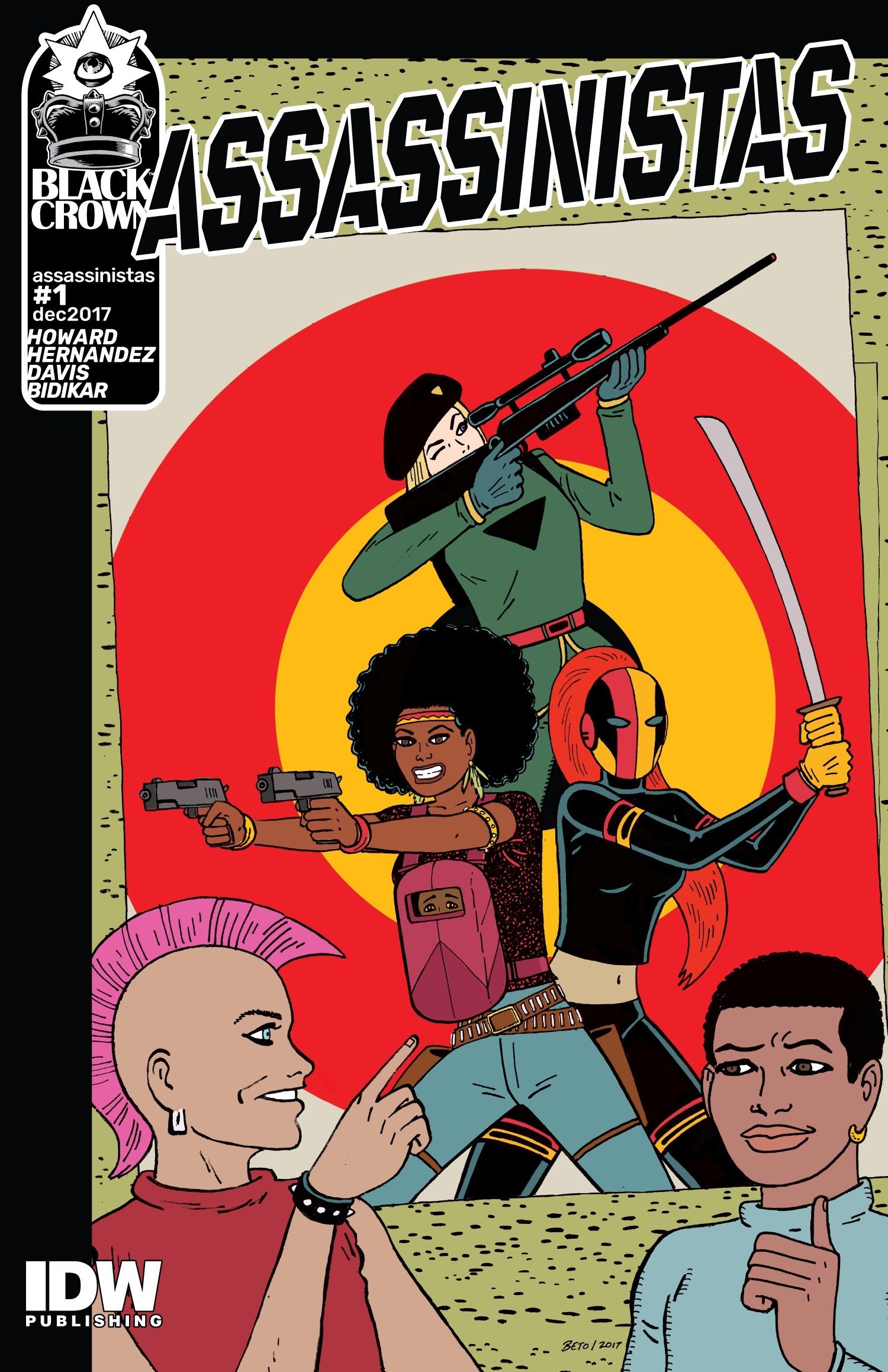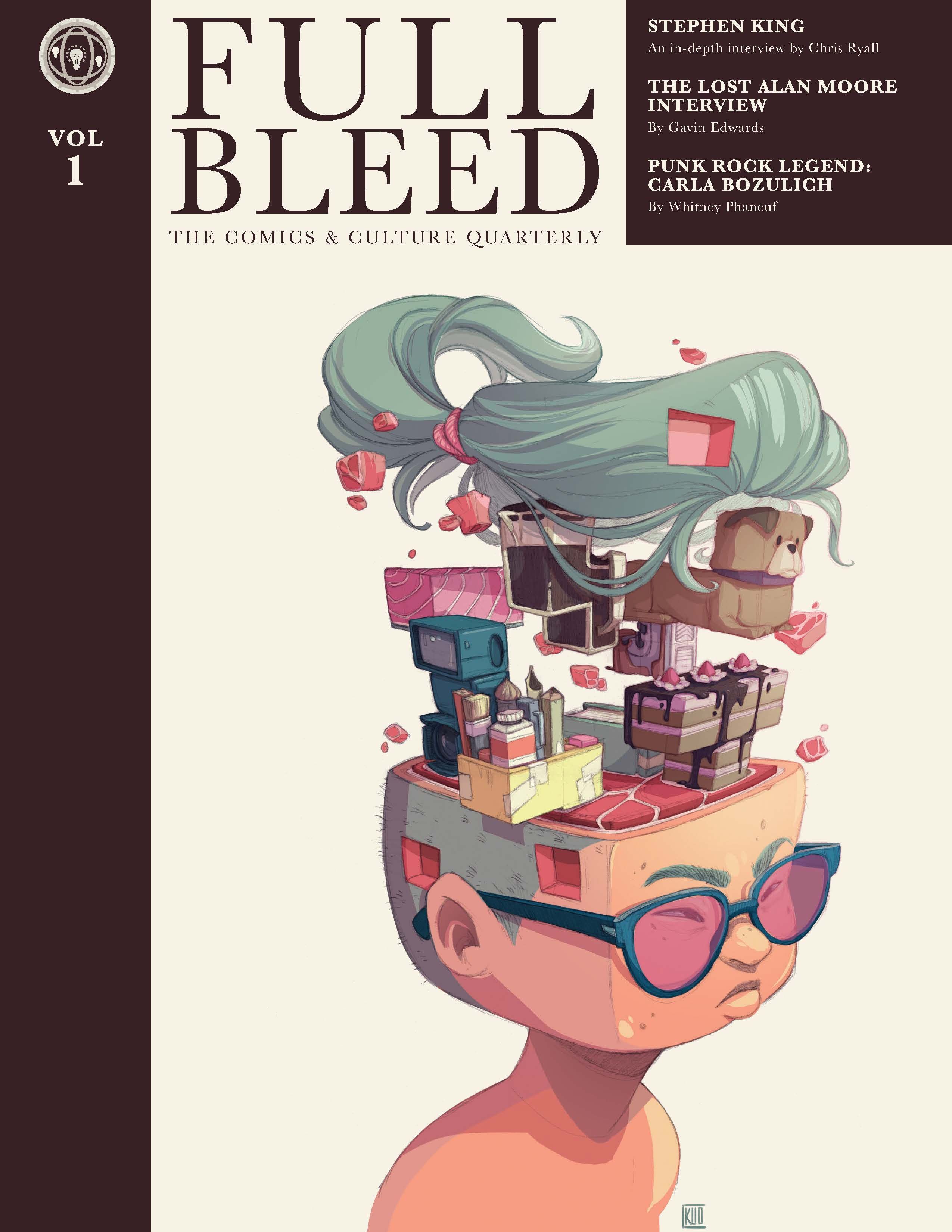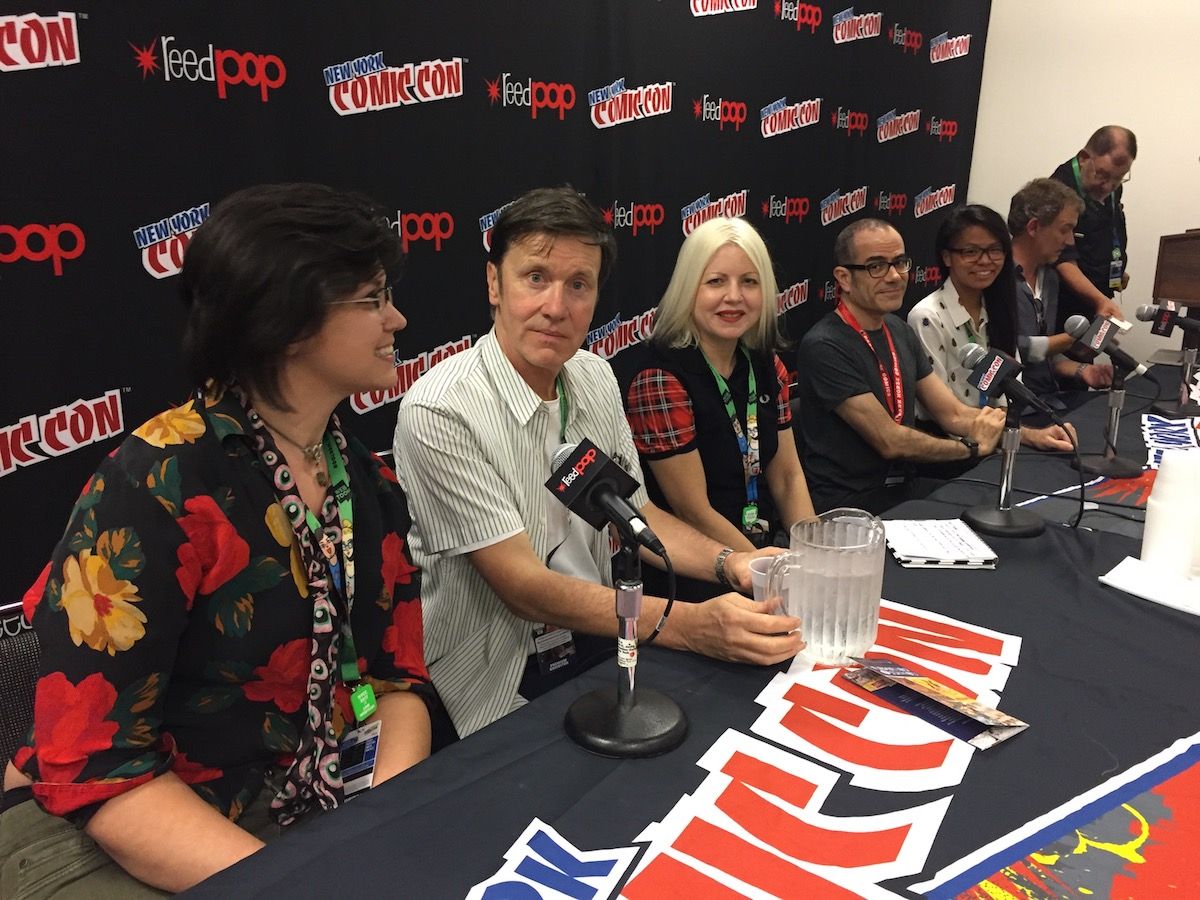IDW Publishing's Friday evening panel last week at New York Comic Con 2017 focused on two projects led by comics veterans: Shelly Bond's Black Crown, imprint and Dirk Wood's quarterly comics magazine, Full Bleed.
In addition to Bond, the former Vertigo editor, and Wood, who is IDW's vice president of marketing, the panel featured a quartet of creators. Repping the Black Crown books were Tini Howard, writer of Assassinistas, and Peter Milligan, writer of Kid Lobotomy; on the Full Bleed side were artists Bob Fingerman and Cassey Kuo.
Bond kicked things off with a short course on Black Crown, which she said is the first of its kind: "The title stands for a creator-owned line of books that share a landscape, which makes it unprecedented and different, anchored by a pub called the Black Crown Pub, on a street where all the characters can commingle and corrupt," she said.
"My idea for the imprint was basically to bring together hardcore veterans like Peter Milligan and pair them with punk neophytes not unlike Tess [Fowler] and Tini, and see what happens on the page."
In addition to the standalone series, the imprint includes The Black Crown Quarterly, which Bond described as "a compendium of all things cool." The first issue includes a 10-page story by Rob Davis (The Motherless Oven) set in the Black Crown Pub; a story about the band CUD, co-written by bassist Will Potter and singer Carl Putnam and illustrated by Bond's husband, Philip Bond; and "Hey Amateur," a comics how-to column.
Bond said the neighborhood was roughly based on St. Mark's Street in New York and South Street in Philadelphia, out-of-the way places where people could find cool things. Kid Lobotomy is set in The Suite, a crumbling hotel on Canon Street. The protagonist is the son of the owner, a young man with obsessions and a strange past who has just been named manager of The Suite, where he thinks the secret to his existence may lie. Milligan described it as "Metamorphosis meets King Lear by way of Young Frankenstein."
"In many ways, Kid Lobotomy comes out of the subconscious," Milligan said. "Even though it draws on my interests -- madness, character, personality -- it manages to feel unique."
Like Kid Lobotomy, Assassinistas does not fit any easy categories, said Howard, although she gave it a go: "It's Kill Bill in a Venture Brothers world," she said. "It's The Expendables meets Fun Home. It's about a bunch of badasses getting together for one last mission, but it's also a family drama." The story centers around a trio of retired assassins who get together when the baby of one of them is kidnapped -- and they are joined by the son of another assassinista because she spent his college tuition money on the rescue mission.
Gilbert Hernandez is the artist of the story. "Gilbert is perfect because when you need someone to convey a relationship, there's no one better," Howard said. "What's another book where generations of relationships are explored? It's Love and Rockets, hands down" -- although in this case, the family is drawn together not by romantic relationships and blood ties, but by murder. "It's a book about a murder-based family unit," she said.
The panel switched over to a discussion of Full Bleed, the hardcover quarterly comics magazine that Wood launched on Kickstarter, where it has already been fully funded. After the Kickstarter campaign ends, it will be available only in comic shops.
"There's actually a lot of deep, intense stuff in this magazine," Wood said. "I don't mean to scare anybody, but we're trying to make something pretty literate, there's been a niche that has been underserved in our world for a long time with long, deep-dive interviews. I think the internet has kind of destroyed America, and this is my counter-programming."
Kuo explained he cover image for the first issue: "I found myself thinking about my life kind of like Tetris: Things fall into your lap, and you have to decide what to do with it, clear the blocks. You take everything you enjoy, everything you dislike, once it all pieces together it should clear away any obstructions to your creative work. That's what the idea behind that piece was."
Wood showed some of the artwork from Full Bleed and focused on Bob Fingerman's watercolor portraits of Donald Trump and other prominent Republicans.
The watercolors were an attempt at therapy, Fingerman said: "I would look at their faces and study them and in a weird way, because I am the East Coast libtard that I am, I was trying to see the humanity in them. It's very easy to go the Gerald Scarfe route and just really do the grotesques, but I didn’t want to do that. In a way, it felt too easy. It felt harder to draw them as human beings. I just wanted to get them out quickly -- most of these were done 15-20 minutes from start to finish. It's about the rawness of it, just get it out. The worst part is, unfortunately, there's no reason to stop doing these. I am desperately in need of not having to do these. These people are not going away."
During the Q&A session, a member of the audience questioned why Fingerman would want to "humanize" these politicians. "I didn’t say I wanted to humanize them," he responded. "I said I was trying to find the humanity, which is different. Even someone like Trump, he wasn’t fully formed as a monster. Monsters are created. He was a little boy at one point. That's the thing, and this is the curse of empathy: You look at someone that broken, somebody who needs to be right, who needs everything to go his way, he didn't just get that way. That happened… The psychic scars are so deep in this guy, and we are all paying for them, but he is a human being in spite of it all. He is a human being."

